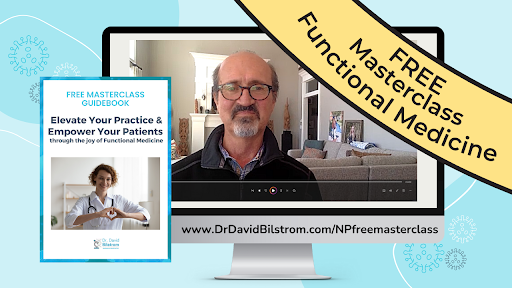The healthcare industry is shifting toward a more holistic approach, emphasizing the root causes of diseases rather than just treating symptoms. Functional medicine is at the forefront of this movement, blending conventional medical practices with lifestyle interventions, nutrition, and personalized treatment plans. As a result, many nurses and nurse practitioners are exploring this field to provide comprehensive, patient-centered care.

Becoming a functional medicine nurse practitioner requires specialized training, certification, and a commitment to integrative health. If you’re interested in this rewarding career, this guide will walk you through the necessary steps, available functional nurse practitioner programs, and the best functional medicine training for nurse practitioners.
What Is a Functional Medicine Nurse Practitioner?
A functional medicine nurse practitioner takes a holistic approach to healthcare, addressing the underlying causes of illness rather than just managing symptoms. This approach integrates traditional medical knowledge with evidence-based practices such as:
- Nutrition and lifestyle modifications
- Gut health and microbiome balance
- Stress management and mental well-being
- Hormone optimization
- Environmental and genetic factors affecting health
Unlike conventional healthcare, functional medicine prioritizes patient education, prevention, and long-term wellness.
How to Become a Functional Medicine Nurse Practitioner
If you’re a registered nurse (RN) or a nurse practitioner (NP) looking to specialize in functional medicine, here’s the step-by-step process on how to become a functional medicine nurse practitioner.
1. Obtain the Necessary Nursing Credentials
Before pursuing functional medicine training, you must first become a nurse practitioner. This includes:
- Earning a nursing degree – You need a Bachelor of Science in Nursing (BSN) or an Associate Degree in Nursing (ADN) with additional qualifications.
- Becoming a licensed RN – Pass the NCLEX-RN exam and obtain state licensure.
- Gaining experience – Working as an RN in primary care, family medicine, or holistic health can be beneficial.
2. Complete a Nurse Practitioner Program
To become a functional medicine nurse practitioner, you must earn an advanced degree. The most common options include:
- Master of Science in Nursing (MSN) – Typically takes 2–3 years to complete.
- Doctor of Nursing Practice (DNP) – Provides advanced education and leadership training.
Your chosen functional nurse practitioner programs should be accredited by organizations like the American Association of Nurse Practitioners (AANP) or the Commission on Collegiate Nursing Education (CCNE).
3. Get Certified as a Nurse Practitioner
After completing your NP degree, you need to become board-certified. Certification depends on your specialty, such as:
- Family Nurse Practitioner (FNP-C, FNP-BC)
- Adult-Gerontology Nurse Practitioner (AGNP-C, AGNP-BC)
These certifications allow you to practice as an NP before transitioning into functional medicine.
4. Enroll in Functional Medicine Training for Nurse Practitioners
Once you’re an NP, you’ll need specialized training in functional medicine. Several organizations offer functional medicine training for nurse practitioners, including:
- The Institute for Functional Medicine (IFM) – Offers the IFM Certification Program (IFMCP), one of the most recognized programs in functional medicine.
- The American Academy of Anti-Aging Medicine (A4M) – Provides functional and integrative medicine courses for NPs.
- The School of Applied Functional Medicine (SAFM) – Focuses on root-cause analysis and personalized treatment plans.
- Functional Medicine University (FMU) – Offers an online certification in functional medicine.
5. Gain Clinical Experience in Functional Medicine
Hands-on experience is crucial to becoming an expert in functional medicine. You can:
- Work in a functional medicine clinic alongside experienced practitioners.
- Offer telehealth consultations in integrative healthcare settings.
- Specialize in areas like gut health, hormone therapy, or chronic disease management.
This practical experience allows you to apply functional medicine principles to real patients, refining your skills and approach.
Conclusion
The demand for functional medicine nurse practitioners is growing as more patients seek personalized, root-cause-based healthcare. If you’re passionate about holistic wellness, disease prevention, and integrative treatment strategies, this career path can be incredibly fulfilling.
By following the steps outlined above, enrolling in the right functional nurse practitioner programs, and completing functional medicine training for nurse practitioners, you can establish yourself as a knowledgeable and skilled practitioner in this evolving field. Whether you choose to work in a clinic, open your own practice, or offer telehealth services, functional medicine allows you to make a meaningful impact on patients’ lives by promoting long-term health and well-being.






Most Commented Posts